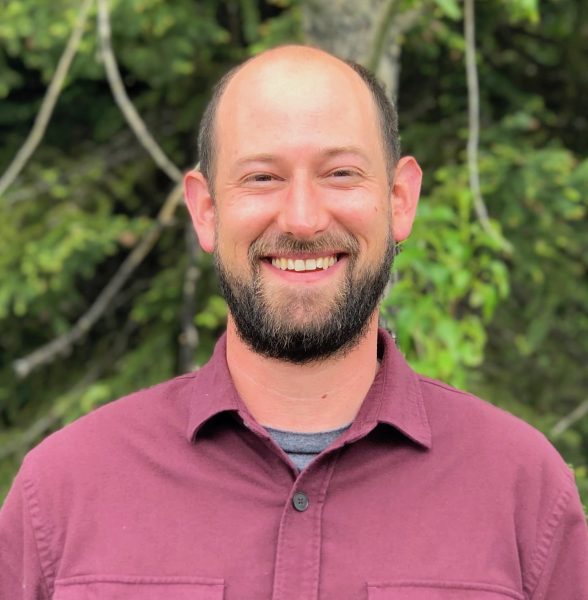Three Thompson Rivers University (TRU) researchers received $590,000 through the federal Natural Sciences and Engineering Research Council (NSERC) Discovery Grants Program, announced today by the Government of Canada.
Minister of Innovation, Science, and Industry François-Philippe Champagne has announced an investment of more than $506 million in new funding to provide 4,216 science and engineering leaders with the means to pursue world-class discovery work.
“Discovery is the foundation of all advancements,” says Champagne. “Through this major investment in some of Canada’s most promising and innovative researchers, we are supporting scientists and students to become global leaders in their field. By helping to expand the frontiers of science, we are investing in a better society and a brighter future for Canadians.”

Dr. Eric Bottos
Dr. Eric Bottos, from the Department of Biological Sciences, has been awarded $252,500 over five years, which includes an Early Career Researcher supplement as well as a Northern Research Supplement, to predict permafrost microbial community responses to thaw based on pre-thaw ecosystem characteristics.
“Research funded by this grant will allow us to better understand how the composition and activity of microbial communities in Arctic soils are influenced by environmental conditions, and how these communities will respond to changes in these conditions brought on by climate change,” says Bottos. “Such knowledge will improve predictions of ecosystem dynamics and climate feedbacks in a warming Arctic.”

Dr. Nelaine Mora-Diez
Dr. Nelaine Mora-Diez, from the Department of Chemistry, received a $180,000 Discovery Grant to focus on the theoretical studies of biochemical and environmental relevance.
“This funding is essential for training students at all levels,” says Mora-Diez. “It allows me to send students to work with collaborators at other institutions, in Canada and overseas. Funding allows me to visit and collaborate with groups on research projects at other universities, train new students who visit TRU and interact with the undergraduate students I supervise.
“This summer, I will be attending two important theoretical chemistry conferences in BC — the Canadian Symposium on Theoretical and Computational Chemistry and the Triennial Congress of the World Association of Theoretical and Computational Chemists) — with six of my students, four of whom are undergraduates and two former TRU graduates who continue to work with me. My NSERC grant, in addition to TRU funding , contributes to fund all this. The reach of our work would be very limited without funding from the Discovery Grants Program.”

Dr. Muhammad Hanif
Dr. Muhammad Hanif, from the Department of Engineering, has been awarded $157,500, which also includes an Early Career Researcher supplement, to study reconfigurable intelligent surfaces-based future wireless communications.
“The NSERC Discovery Grant allows me to work on one of the most-promising techniques of the 6G wireless communication systems: Reconfigurable Intelligent Surfaces (RIS),” says Hanif. “Deploying RIS can result in increased data speed, reduced data latency, ultra-reliable communication and significantly-reduced power consumption of communication devices, simultaneously. These features enable a plethora of applications, which cannot be realized using the currently-deployed technology. Thus, the grant allows me to contribute to some of the exciting applications and use cases of the 6G wireless communication systems, such as super-smart cities, smart health care, multisensory extended virtual reality and holographic telepresence.”

